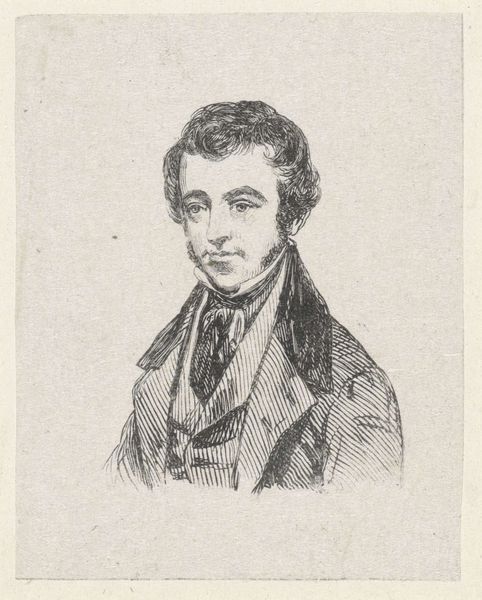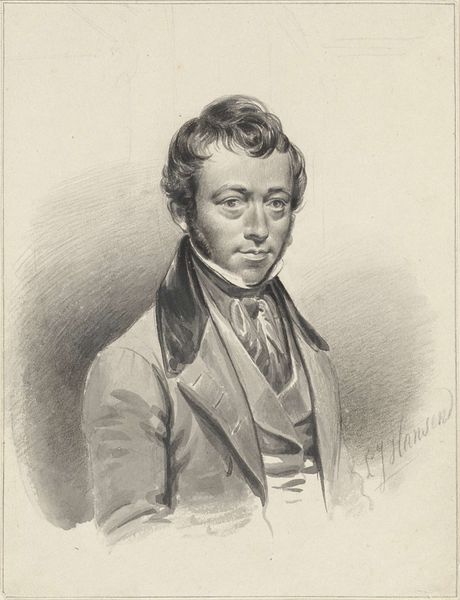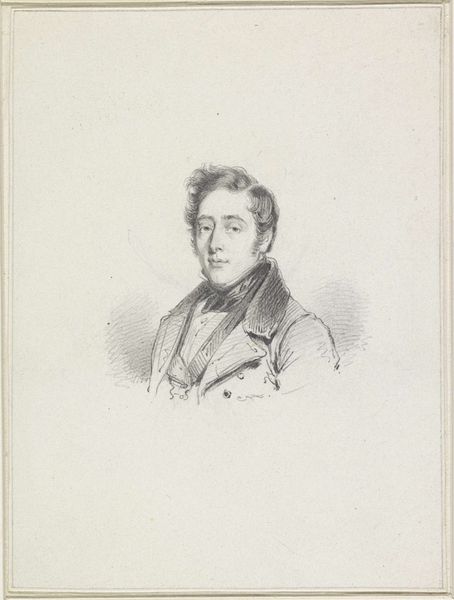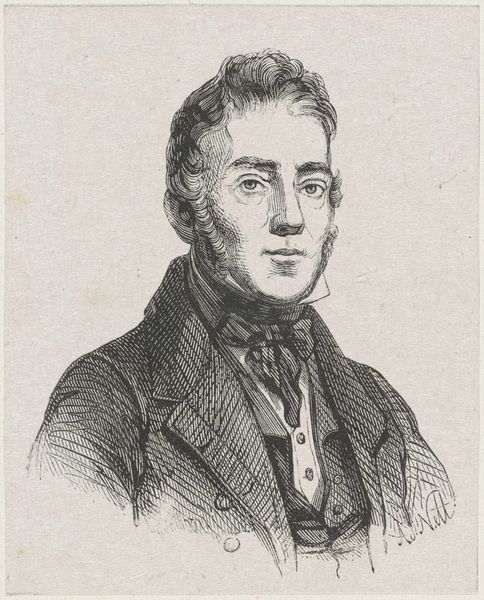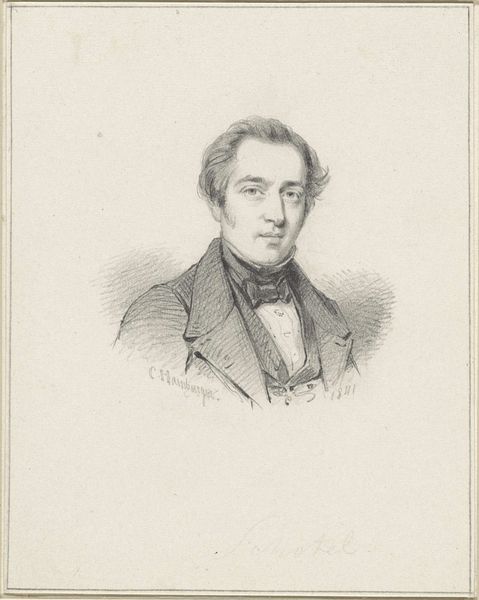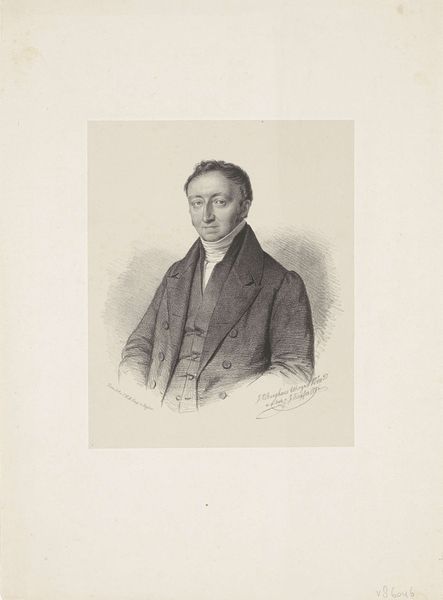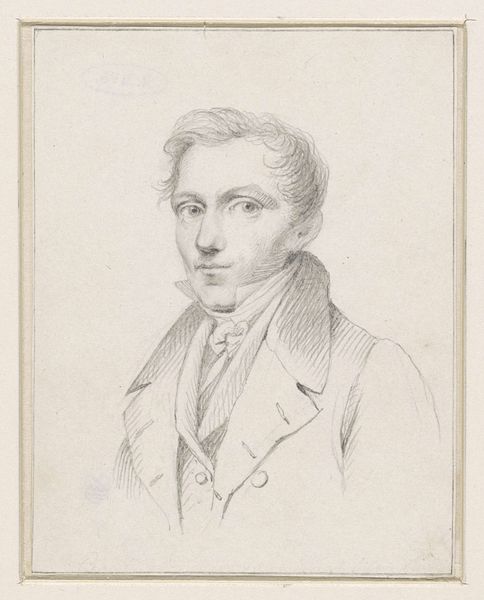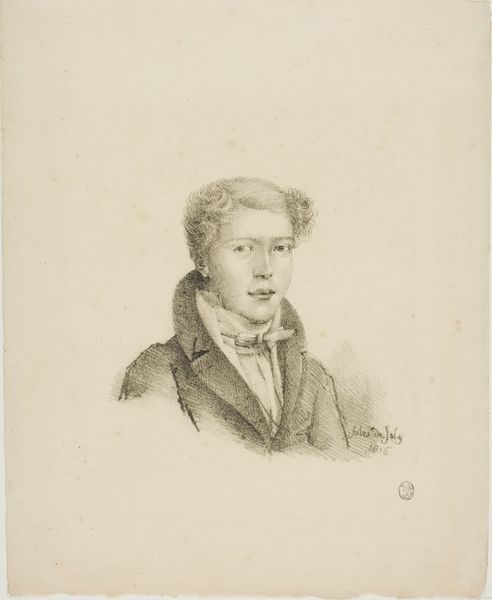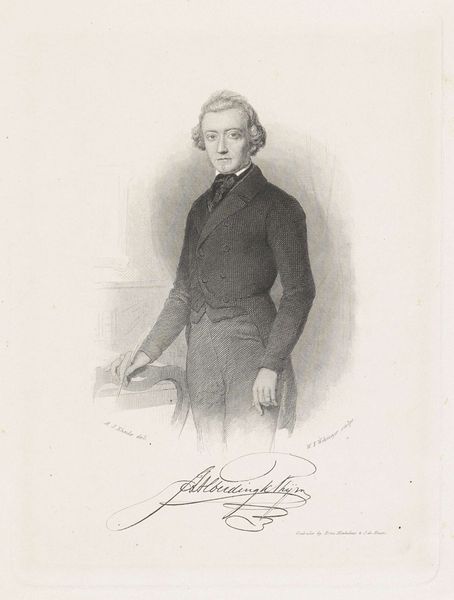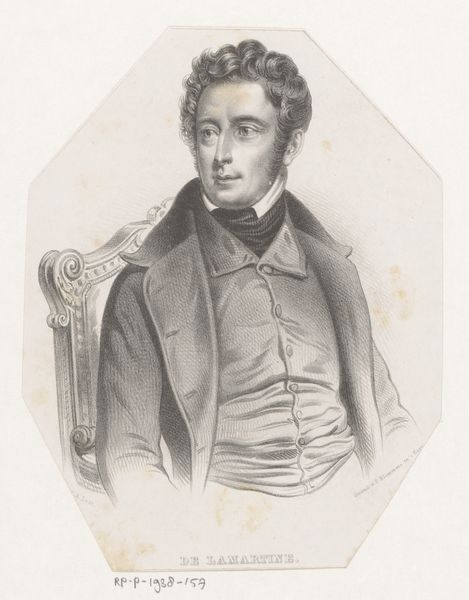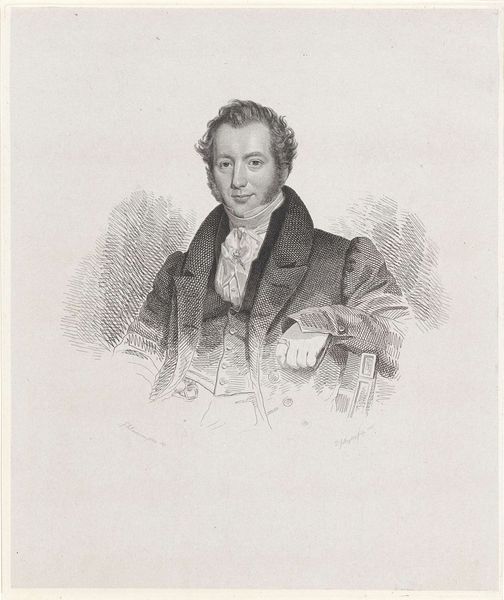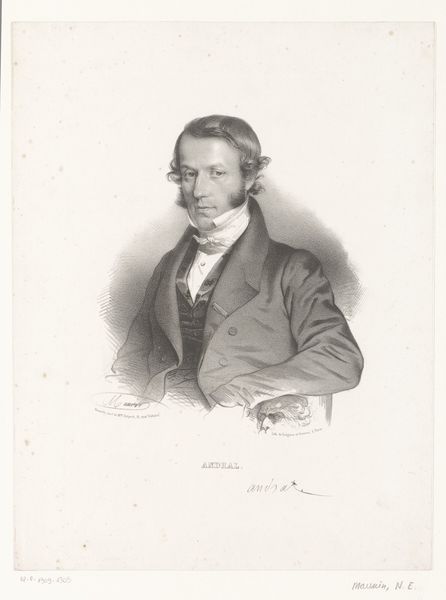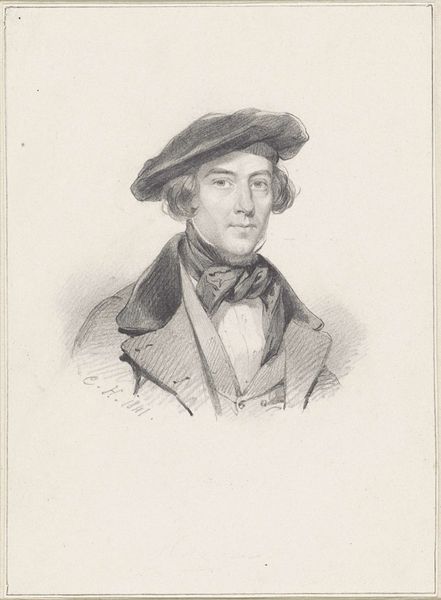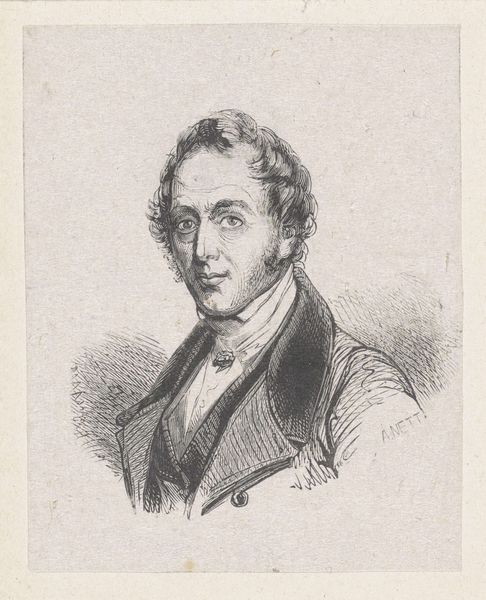
drawing, pencil
#
portrait
#
pencil drawn
#
drawing
#
facial expression drawing
#
light pencil work
#
pencil sketch
#
portrait reference
#
idea generation sketch
#
pencil drawing
#
romanticism
#
pencil
#
limited contrast and shading
#
portrait drawing
#
pencil work
#
realism
Dimensions: height 262 mm, width 177 mm
Copyright: Rijks Museum: Open Domain
Curator: I’m immediately struck by the intimacy of this portrait. The soft lines and shading create a gentle, almost dreamlike quality. Editor: You're right, there’s an approachable quality here. What we're looking at is a pencil drawing entitled "Portret van A. W. Berlijn," dating from somewhere between 1826 and 1839, by J.B. Clermans. Curator: Berlijn looks every bit the Romantic hero! The cascade of loose waves, the flowing bow tie, even the hint of melancholic sensitivity in his eyes. And what's that he holds? Sheet music, perhaps? He certainly captures an ideal of the time. Editor: Note how that musical association enhances his character in this image. Poses and props played such an important part in constructing and circulating social identities at this time. Also, the Romantic movement valued emotion over reason, emphasizing personal expression. And, let’s face it, those big lapels are very attention-grabbing and stylish. Curator: Absolutely. It’s a clever compositional trick, the framing creates a very flattering effect! I also notice how the artist uses light. Soft gradations define form instead of stark lines which emphasizes delicacy. In addition, the detail in his face versus the swirling lines fading towards the edge create a dreamy, intangible effect. Editor: It draws our attention right where Clermans wants it: the gentleman's intelligence and personality. And there’s also something quite compelling in the limited use of contrast here, making for a gentle rather than overpowering impression. You see, it tells us how art was evolving, moving away from the stiffer, more formal portraits of the previous era and edging toward capturing the sitter’s inner life. Curator: This artwork has offered fresh appreciation for the strategies involved in depicting status. Editor: And, for me, it underlines how art, especially portraiture, acts as a window into both individual psychology and a whole era's values.
Comments
No comments
Be the first to comment and join the conversation on the ultimate creative platform.
